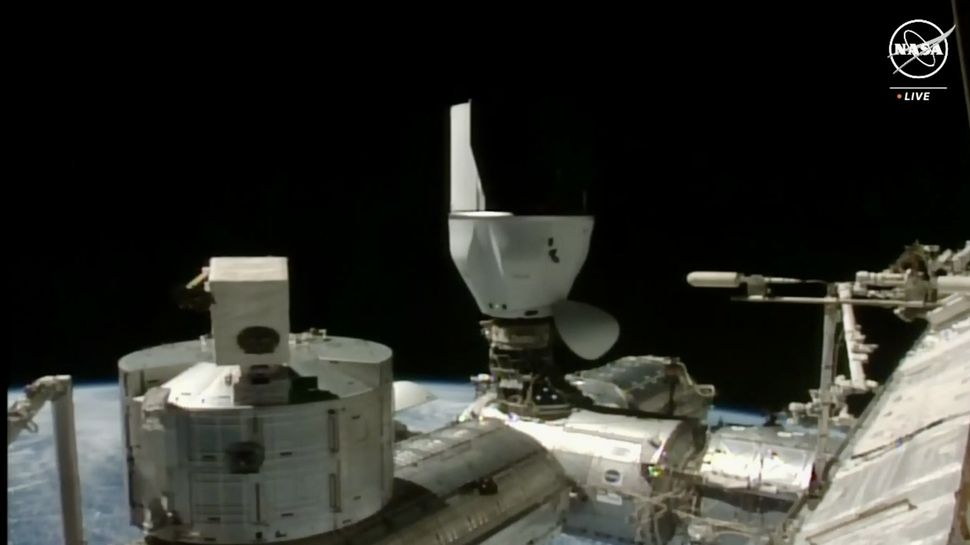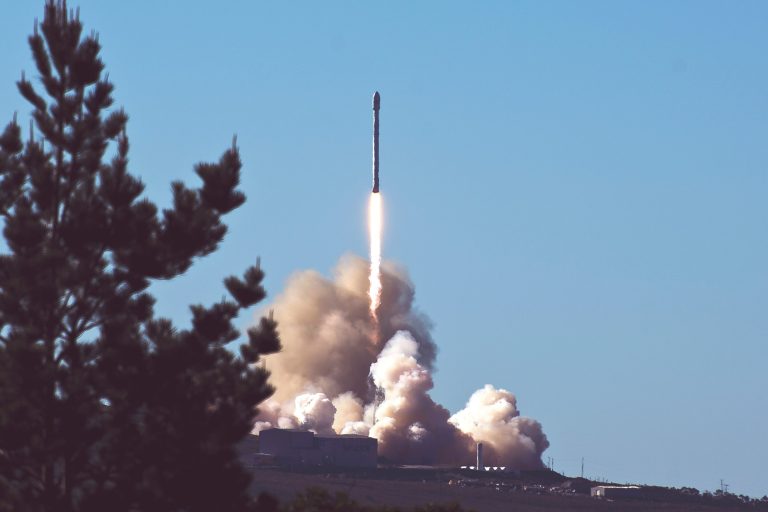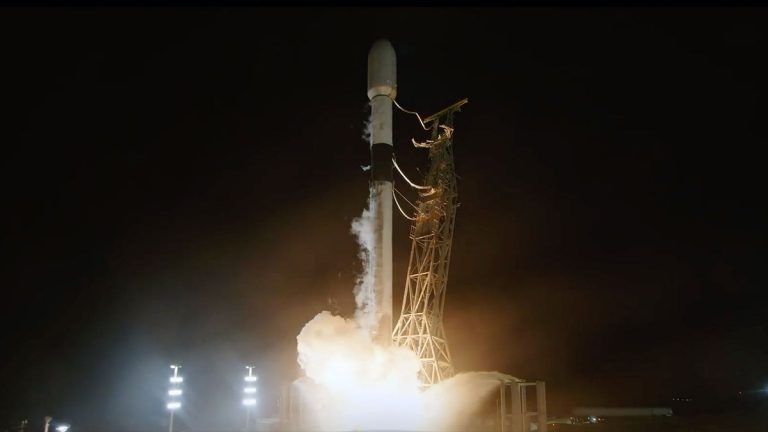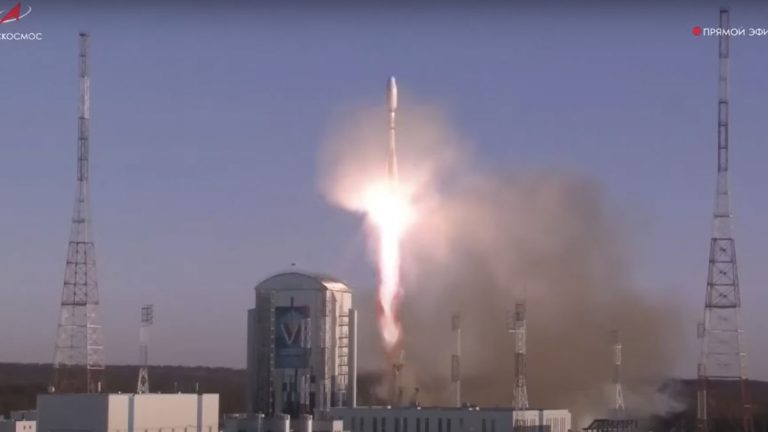
Watch SpaceX Dragon cargo capsule depart the ISS today (Image Credit: Space.com)
A SpaceX cargo ship will begin its journey back to Earth today (April 28), and you can watch the action live.
The robotic Dragon capsule is scheduled to undock from the International Space Station (ISS) today around 1:05 p.m. EDT (1705 GMT), ending a five-week stay at the orbiting lab.
You can watch the action live here at Space.com, courtesy of NASA; coverage will begin around 12:45 p.m. EDT (1645 GMT).
Related: SpaceX launches its 30th Dragon cargo mission to the ISS (video)

The current Dragon mission is known as CRS-30, because it’s the 30th one that SpaceX has flown to the ISS under a Commercial Resupply Services contract with NASA.
CRS-30 began on March 21, with a launch atop a SpaceX Falcon 9 rocket. The capsule docked with the orbiting lab on March 23, delivering about 3 tons of scientific hardware and supplies to the orbiting lab.
The capsule will haul cargo in the downward direction as well.
“Dragon will carry back to Earth more than 4,100 pounds (1,860 kilograms) of supplies and scientific experiments designed to take advantage of the space station’s microgravity environment,” NASA officials wrote in an update on Friday (April 26).
“Splashing down off the coast of Florida enables quick transportation of the experiments to NASA’s Space Systems Processing Facility at Kennedy Space Center in Florida, allowing researchers to collect data with minimal sample exposure to Earth’s gravity,” they added.
Dragon is the only cargo craft capable of bringing gear home safely from the ISS. The other two currently operational space freighters, Russia’s Progress vehicle and Northrop Grumman’s Cygnus spacecraft, burn up in Earth’s atmosphere when their work in orbit is done.
There will still be a SpaceX vehicle docked to the ISS after CRS-30’s undocking — the Dragon that’s flying the company’s Crew-8 astronaut mission for NASA.
Crew-8 launched on March 3, sending NASA astronauts Matthew Dominick, Michael Barratt and Jeanette Epps and Alexander Grebenkin of Russia’s space agency Roscosmos to the ISS for a six-month stay.








